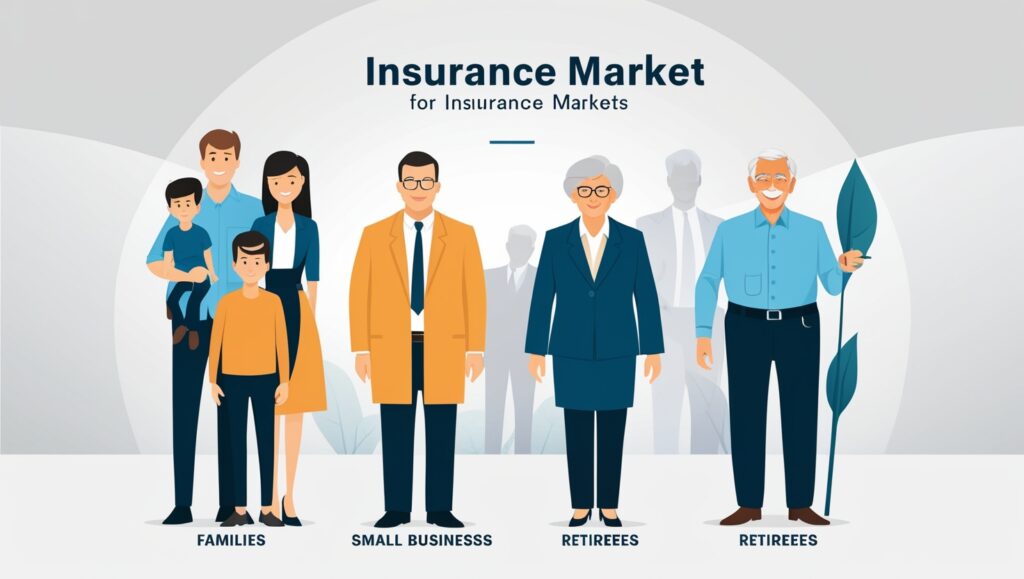When you’re launching an insurance company or seeking funding to take your business to the next level, a business overview pitch deck is a necessity. It’s essential to have a clear one, according to 90% of investors. A concise pitch helps to inform their investment decision.
A well-constructed insurance agency pitch deck does more than just explain your vision – it also shows how your company will stand out. Whether you’re a startup insurance agency or a recognized company, to attract investors, partners, and customers, you need a solid pitch.
This article will guide you on how to build a business overview presentation for your insurance agency that showcases all the key aspects – from your insurance sector analysis to your monetary predictions for insurance.
Along the path, we’ll cover important topics like your intended clients for insurance, the revenue model in insurance, marketplace prospect analysis, and a whole lot more.
Key Factors of a Perfect Insurance Agency Pitch Deck
A good investment pitch for an insurance agency needs to clearly communicate the following points to prospective investors or collaborators.
To get the most impact, structure your pitch deck like this:
1. Overview of Your Insurance Agency
Begin with a brief introduction to your company. This part needs to clarify your identity, the categories of insurance coverage solutions you provide (e.g., life, health, or auto insurance), and what sets your agency apart. The objective is to capture the audience’s attention immediately.
- Example: We are an insurance agency that specializes in affordable, customizable life and health insurance plans for families and small businesses. Our mission is to make insurance simple, accessible, and affordable.
2. Insurance Industry Analysis
Here, show that you’re familiar with the insurance sector to your audience. This encompasses talking regarding insurance market trends, consumer behavior, obstacles in the sector, and prospects.
Investors will want to understand that your company is poised to take advantage of current trends, like the move towards digital insurance buying.
- Example: The insurance industry is rapidly moving towards online platforms, with consumers seeking more control over their policies. We aim to tap into this growing market by providing online tools for policy management and customer service.
3. Market Opportunity Analysis

Every investor wants to know how big the industry is for your merchandise. By conducting a market prospect analysis, you can demonstrate the insurance market’s potential for growth.
Who are the people you’re serving, and what issues do you help them with? This will assist your investors grasp the need for your services.
- Example: Our intended market consists of young families who want affordable health insurance, as well as small business owners looking for comprehensive business insurance. With millions of young families and small businesses in our target audience, the expansion opportunity is significant.
4. Risk Management Strategy
Investors will want to understand how you intend to handle risks. Risk assessment is important in the insurance industry, and you should outline the measures you’ll take to mitigate potential risks to your business and customers.
This might encompass data protection protocols, fraud prevention, and financial risk management strategies.
- Example: We utilize cutting-edge tech to evaluate risks for our clients, ensuring they are only paying for the coverage they need. Additionally, our team regularly reviews industry guidelines to guarantee adherence and reduce legal risks.
5. Revenue Model in Insurance
How will your insurance firm generate revenue? Detail your income strategy in insurance, whether it’s through premium collections, commissions, or other revenue streams. This section should clearly explain how your agency intends to generate income and sustain itself.
- Example: We earn revenue through commissions from insurance providers, in addition to from administrative fees for additional offerings such as policy oversight and claims handling.
6. Financial Forecasts for Insurance
Investors need to know what kind of financial results they can expect from your business in the upcoming. Show your expected revenue by providing financial projections for insurance, earnings, and expansion over the upcoming years. Charts or graphs can be used to make it easy to understand.
- Example: We anticipate a 30% growth in revenue year-over-year for the first three years, reaching $5 million in annual revenue by year three. Our operational costs are expected to remain low which allows for high profitability as we scale.
7. Target Audience for Insurance
Clarify your intended audience for insurance distinctly. Whether you’re focusing on customers, families, or companies, I guarantee you’ll identify your perfect clients and explain why they’ll select your agency over the rest.
- Example: Our our intended audience consists of young families who need budget-friendly health insurance, and small enterprises owners who want comprehensive enterprise insurance coverage.
8. Unique Selling Proposition (USP)

What makes your insurance agency unique compared to others? Here, you’ll outline what makes your product or service unique, your Unique Selling Proposition (USP). Whether it’s personalized client service, innovative technology, To stand out with competitive pricing, highlight your agency’s unique strengths.
- Example: Our USP is that we provide fully customized insurance packages that clients can manage through our user-friendly mobile app. This gives them flexibility and control over their coverage without the complexity.
9. Client Testimonials & Success Stories
Nothing builds trust like client testimonials. Include feedback from satisfied customers who have benefited from your services. Real-life success stories help make your agency feel more credible and trustworthy to potential investors.
- Example: Jane, a single mother, saved 40% on her health insurance after switching to us. She says, ‘I finally found an affordable plan that meets my needs. The procedure was quick, and I’m saving so much!’
10. Insurance Industry Challenges & Solutions
Every business confronts difficulties. Talk about the insurance sector challenges you might encounter and how you intend to overcome them. This reveals that you’ve thought critically about possible obstacles and are ready to tackle them.
- Example: In the insurance industry, a common challenge is retaining customers. To address this, we’ve developed a client retention initiative that benefits customers who stay with us over time.
11. Financial Health of the Agency
Investors need to see that your insurance company is financially stable. Incorporate details regarding your financial health, like income, outgoings, revenue margins, and any debts, and describe how you aim to preserve stability as the company grows.
- Example: Our firm is in a stable financial position with low debt, beneficial cash flow, and a strong strategy for reinvesting profits back into marketing as well as tech innovation.
12. Visual Presentation Tools
To create your pitch deck visually appealing, use visual presentation tools such as diagrams, illustrations, and data visuals. These tools help simplify complex data and enhance your business strategy more engaging.
- Example: Our pitch deck contains graphs illustrating our income forecasts and pie charts showing how we distribute resources for marketing, technology, and client assistance.
Final Verdict – Why Investors Should Select Your Insurance Agency?
Finish with a powerful, persuasive conclusion that ties together every argument you’ve presented. Emphasize the strengths and possibilities of your agency, and how it’s a fantastic investment prospect.
- Example: Using a distinctive method for client support, strong expansion capability, and a crew committed to innovation, our insurance company is primed for success. We invite investors to join us on this amazing journey.
Target Audience for Insurance
|

Insurance Industry Challenges & Solutions
|
Conclusion: Get Prepared to Pitch Your Insurance Agency
Creating a business overview pitch deck for your insurance company is an excellent way to entice backers and collaborators.
Incorporate essential segments like your market potential evaluation, build a compelling pitch by developing a risk management strategy and creating financial projections for insurance. Your pitch will stand out. Focus on insurance trends and a clear revenue model.
Frequently Asked Questions
Q: What Is A Business Overview Pitch Deck For An Insurance Agency?
A corporate summary presentation offers an overview of your insurance company’s strengths, goals, and monetary forecasts. It’s a strategy to pull in investors or partners.
Q: What Must Be Contained In An Insurance Agency Pitch Deck?
Crucial components consist of a market opportunity assessment, unique selling proposition (USP), financial projections, target market, and enterprise strategy presentation.
Q: How Do I Define My Target Audience For An Insurance Agency?
Your intended audience for insurance might be families, small enterprises, or particular groups like millennials.
Q:What Is a Unique Selling Proposition (USP) in an Insurance Agency’s Pitch?
Your USP highlights what sets your insurance agency apart, such as your customer support or products.
Q: How Do I Create Financial Projections For An Insurance Agency?
Estimate revenue, expenses, and net income we expect over the coming years. Support your projections with industry data.
Q: How Could I Demonstrate The Financial Health Of My Insurance Agency?
Present information regarding earnings, profit ratios, and debt levels, showcasing a financially stable company.
Q: Why A Market Opportunity Analysis Important For An Insurance Agency?
A business prospect analysis shows that there’s a need for your services and room for expansion.
Q: How Do I Handle Market Difficulties In My Pitch Deck?
What are some common difficulties in the insurance industry, and how do you plan to overcome them?.
Q: What Are Visual Presentation Tools In A Pitch Deck?
Visual presentation tools, such as graphs, charts, and infographics, make information simpler and the pitch more captivating.
Q: Can A Pitch Deck Incorporate Client Endorsements?
Yes, client reviews help establish trust and demonstrate that your agency possesses a track record of satisfying customers.

